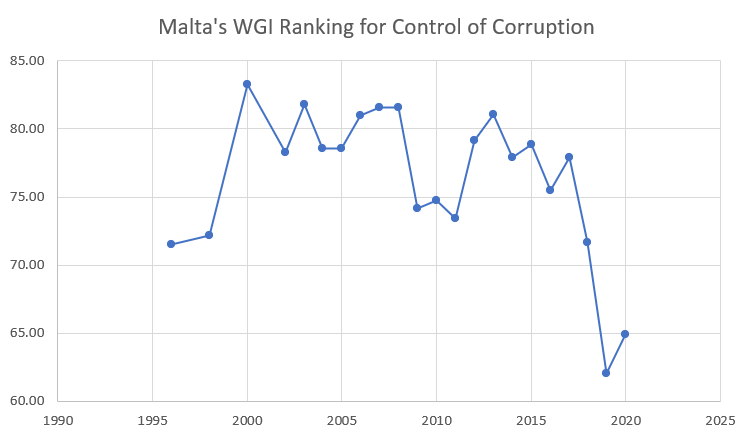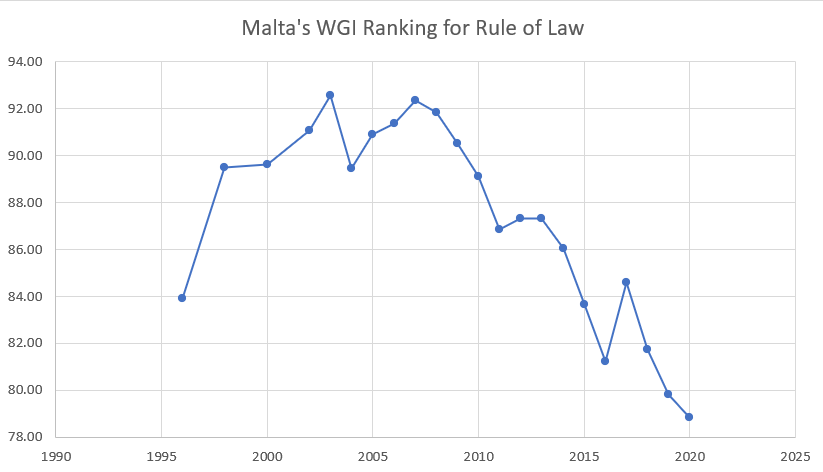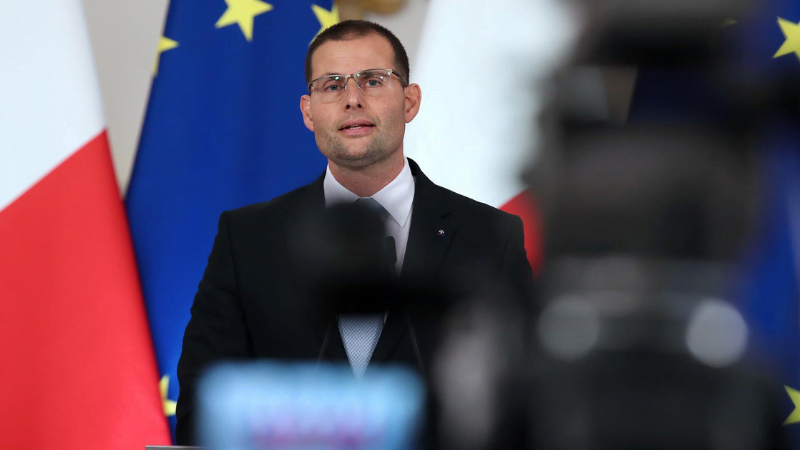It is unclear why anyone would think it was a good idea to include in Robert Abela’s speech last Saturday the declaration that in the two years since his appointment there has not been a single episode of bad governance.
Many, including Opposition Leader Bernard Grech, were quick to note several current and former ministers embroiled in one scandal or another. Yet good and bad governance is not simply about ministers behaving badly and/or unethically. It includes the entire process by which public institutions conduct public affairs and manage public resources and the government’s record to date remains glaringly deficient.
The United Nations High Commission for Human Rights (OHCHR) identified the key attributes of good governance as including, transparency, responsibility, accountability, participation, and responsiveness (to the needs of the people).
The World Bank also has a set of indicators of governance that it uses to measure good and bad governance: voice and accountability, political stability and absence of violence, government effectiveness, regulatory quality, rule of law and control of corruption.
According to the World Bank’s own index, Malta’s governance score for the “control of corruption” indicator shows a disconcerting trend. The score is measured on a scale from approximately -2.5 to 2.5 with higher values corresponding to better governance. In Malta’s case, the values are decreasing, indicating a sharp deterioration in the control of corruption, not an improvement.

Control of Corruption Indicator for Malta. Source: The World Bank
Transparency and accountability
Robert Abela and his Cabinet may have inherited a host of troublesome and costly deals from Joseph Muscat, including the wretched deals with Electrogas and Vitals Global Healthcare. Yet Abela’s administration has done little to remedy them, let alone hold to account those individuals involved in concocting these deals which have siphoned millions away from Malta with no corresponding benefit accruing to the Maltese people.
When Malta was greylisted by the FATF, instead of acknowledging the government’s shortcomings, past and present, the government disseminated the narrative that the FATF’s decision was “unjust” and that Malta did not deserve that stigmatisation.
When the public inquiry’s conclusions on the State’s role in the assassination of Daphne Caruana Galizia found that “the State should bear the responsibility for the assassination by creating a climate of impunity, generated from the highest levels at the core of the administration at Castille and spreading its tentacles to other entities such as regulatory institutions and the police which led to the collapse of the rule of law,” Abela argued that there is “no impunity” in Malta, directly contradicting the inquiry board’s conclusions.
The current administration also appears to actively work against transparency, which is also considered as an attribute of good governance.
Take Silvio Schembri, for example, who refused to publish the contract of lease for office space for the Malta Business Registry. Schembri misled parliament claiming that the lease would only cost taxpayers €8.4 million. The NAO found the deal is costing taxpayers as much as €31 million.
Up until November 2021, every single government ministry has ignored questions sent by The Shift to their respective official spokespersons about the number of people employed in state-appointed bodies falling under the remit of their ministries. The questions were sent after 19 government MPs failed to answer questions filed by Opposition MPs about persons of trust employed per ministry and the amount of money spent on TV advertising from 2007 to 2021, respectively.
The Office of the Prime Minister has also refused to reply to questions about whether Justyne Caruana will be paid another €30,000 in termination benefits. Caruana had already benefited from €28,589 in termination benefits after her first dismissal from office in 2020.

Rule of Law Indicator for Malta. Source: The World Bank
The rule of law and the control of corruption
In May 2021, the Council of Europe published an addendum to GRECO’s second compliance report that found that Malta continues to lag behind when it comes to fully implementing the nine recommendations that deal with “corruption prevention in respect of members of parliament, judges and prosecutors”.
One example cited in the report was how the new draft code of ethics for Malta’s members of parliament contains no provisions for sanctions and their effective enforcement in the case of violations. The Council of Europe’s anti-corruption body also underscored that, to date, only four of the nine recommendations have been adequately implemented.
The 2021 Rule of Law Report published in July by the European Commission, found that there remain “serious challenges” in terms of the efficiency of the justice system, in particular the length of proceedings, the low number of judges, and the lack of an established track record in high-level corruption convictions.
The report noted that while some investigative bodies have improved their capacity to deal with corruption, investigations continue to be lengthy, meaning that many cases involving politicians and high-level officials remain before the court, indicating a lack of efficiency.













Can Robert Abela ask his Ministers to divulge the full list of direct orders and sponsorships given out since Labour got in power? Hold your breath about that. They will never publish that info.
At best: “L-informazzjjoni qieghda tingabar”.
At the worst: “L-informazzjoni mhix fl-interess tal-poplu”.
Non-committal: “L-informazzjoni ma tistax tinghata’ ghaliex kommercjalment sensittiva”.
That goes to show that Robert Abela doesn’t know what good governance is.